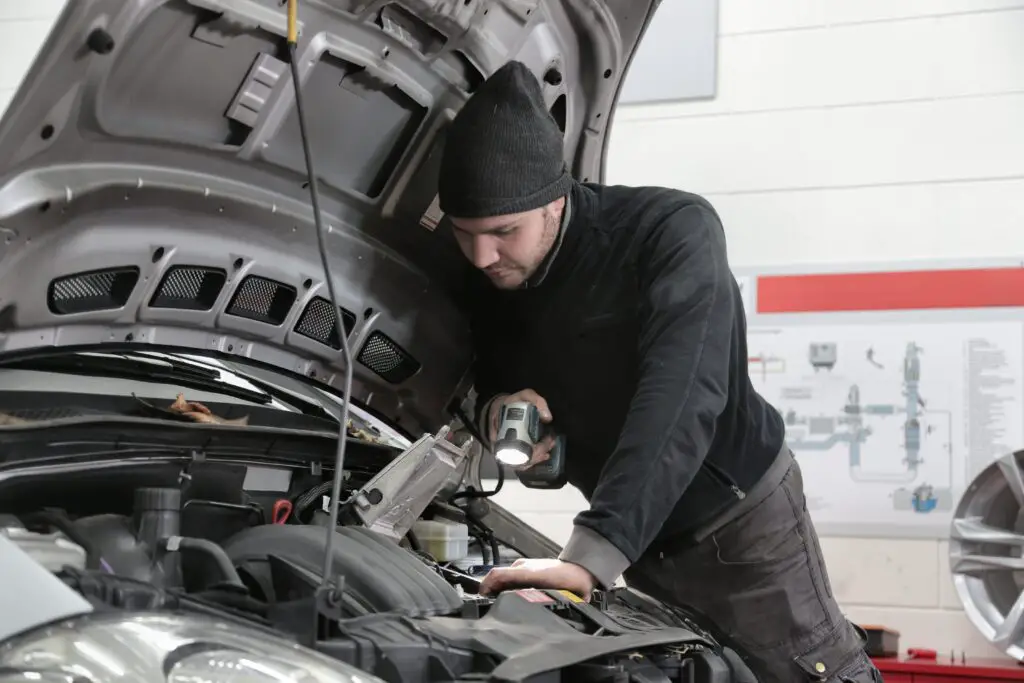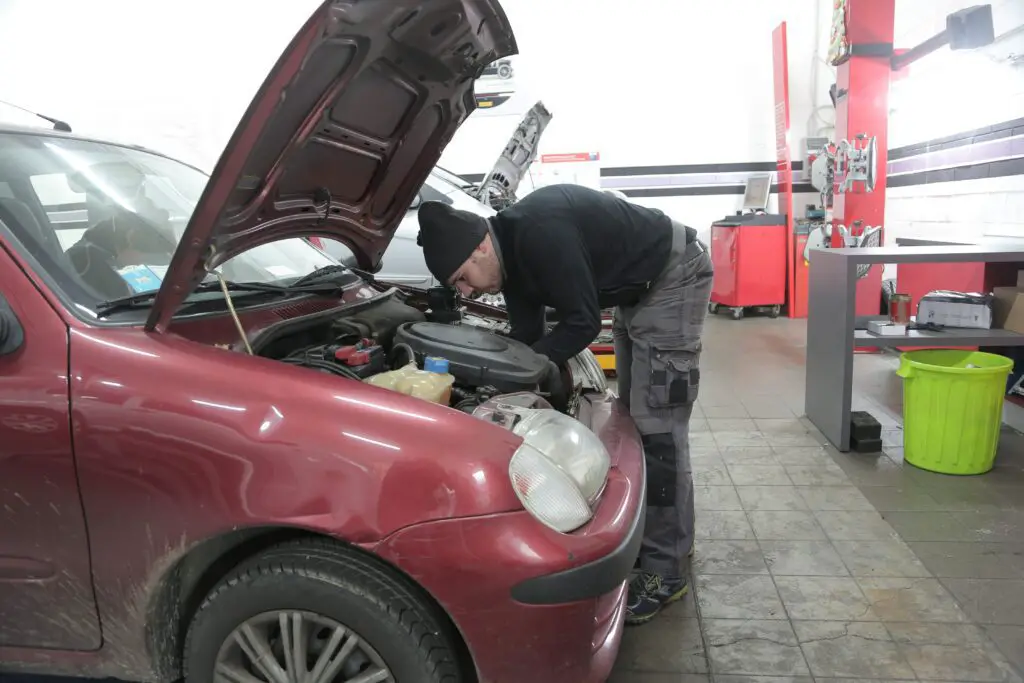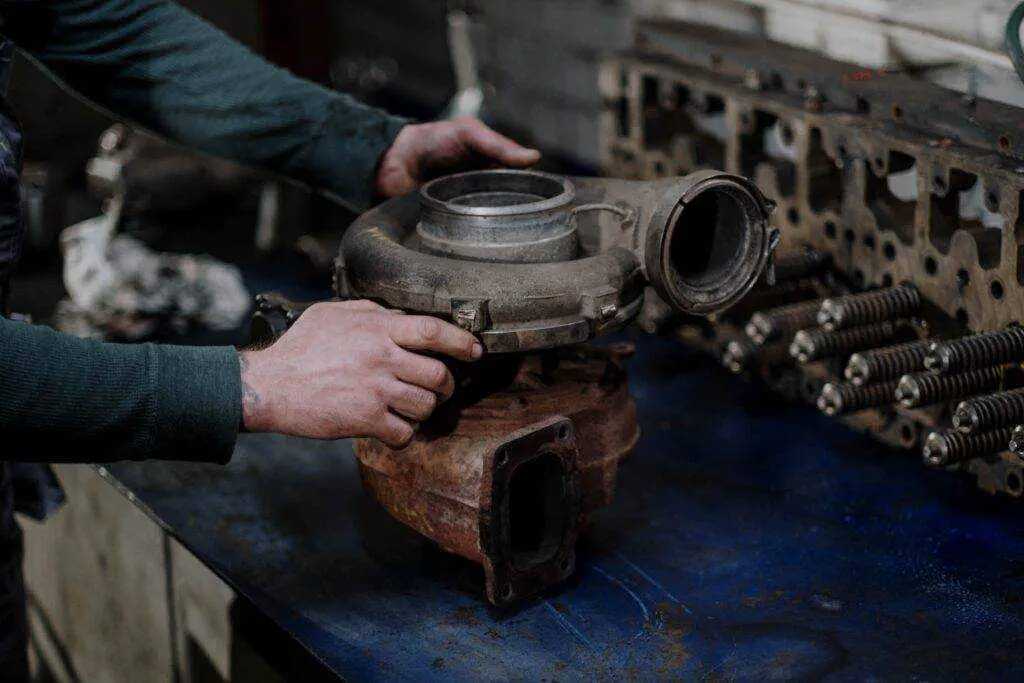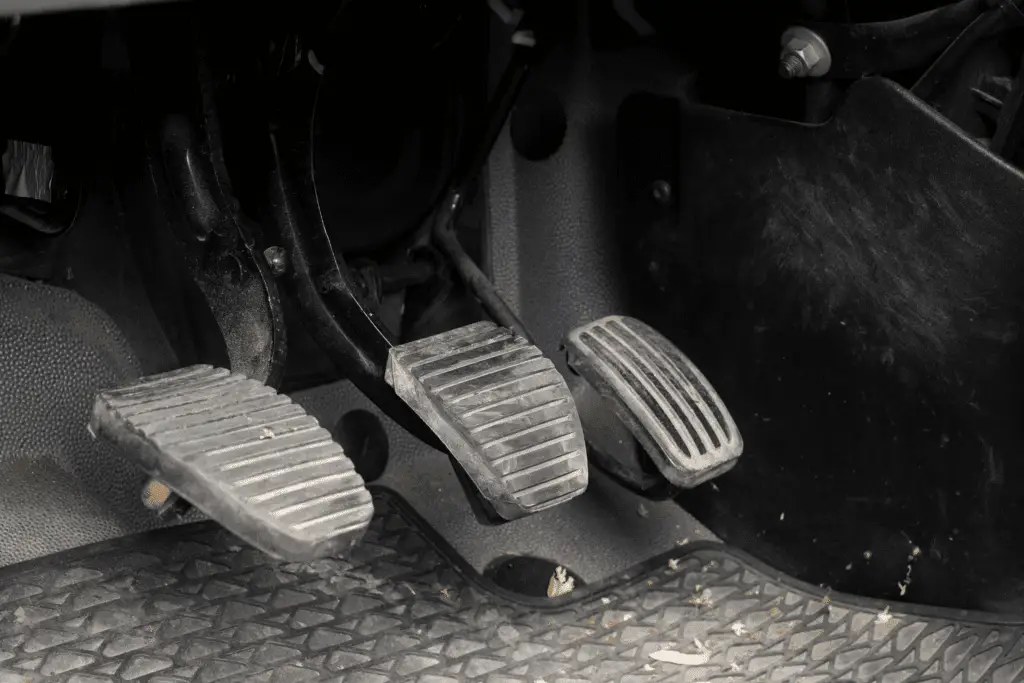Having your ac off due to high engine temp can be an annoying and concerning occurrence. Vehicle AC shutting off due to elevated engine temperature is a common problem that generally indicates some underlying issue that needs attention. In this detailed guide, we’ll explore all the typical mechanical and maintenance reasons that this AC failure occurs due to high engine temperature. Understanding what causes AC to turn off when the engine gets too hot allows you to diagnose and resolve the root problem, getting your cooling system working properly again
Understanding the root causes allows you to diagnose and repair AC systems impaired by engine overheating. With some basic maintenance and attention to engine operating conditions, you can minimize unpleasant AC shutoffs during summer driving.
Air Conditioning Basics – How Does AC Work in Cars?
To understand why AC fails when the engine overheats, it helps to first review how automotive air conditioning systems function:
- The heart of the system is the AC compressor, which pressurizes refrigerant gas using engine drive belts. This kicks off the cooling cycle.
- The compressed refrigerant flows into the condenser, where it dissipates heat and condenses into liquid form.
- Passing through the expansion valve next causes the refrigerant pressure and temperature to drop rapidly.
- Inside the evaporator, the now cold liquid refrigerant absorbs heat from the cabin air, cooling it.
- The refrigerant evaporates again into a gas, returning to the compressor inlet to repeat the cooling cycle.
Proper AC operation relies on the stability of engine drive components, unimpeded refrigerant flow, and heat transfer in the condenser and evaporator. Engine overheating disrupts this delicate balance.
Why Does AC Off Due to High Engine Temp?
There are a few interconnected reasons that AC systems often shut off or blow warm cabin air when engine temperature climbs:
Prioritizing Engine Cooling
Once beyond optimal range, the engine’s computer begins prioritizing vital engine cooling over non-essential systems like AC.
So compressor clutch engagement is disabled to reduce load on overworked engine components. This prevents immediate engine damage but leaves you roasting inside.
Refrigerant Pressure Issues
Extreme engine bay heat boils refrigerant, causing abnormally high system pressures. This can damage AC components not designed for extremes beyond design specs.
Turning the AC off prevents potential compressor and line damage from excessive refrigerant pressures. But again eliminates cabin cooling when you need it most.
Coolant Overheating
Engine coolant also provides vital cooling for the AC condenser. Coolant that is low, old, or has insufficient airflow over the radiator cannot properly cool the condenser and you can face the problem of AC off due to high engine temp.
When condenser cooling falters, the AC system loses efficiency. At extreme temperatures, pressure builds and AC fails to prevent damage.
In summary, prioritizing engine protection, unstable refrigerant pressures, and inadequate condenser cooling all contribute to AC turning off when engine temperatures spike. Let’s explore the reasons for overheating issues.

What Causes Engine Temperature to Become Too High?
Several issues can allow engine operating temperature to creep out of the normal ~195-220°F range into overheating territory. capable of shutting off the AC, as covered here.
Coolant System Problems
Low coolant, contaminants in the coolant, thermostat failure, water pump issues, and radiator blockages or leaks all affect the engine’s ability to shed heat via the cooling system or AC off due to high engine temp.
Failed Engine Components
Worn piston rings, leaking head gaskets, ignition misfires, oil breakdown, clogged fuel injectors, and exhaust restrictions strain the engine and increase temperatures. Problems like turbochargers leaking oil also create performance issues like AC off due to high engine temp and should be addressed promptly.
Extreme Ambient Conditions
Air temperatures exceeding 100°F, stop-and-go traffic, sustained mountain driving, and towing heavy loads in hot weather also bump engine temperatures closer to thresholds.
Bad Engine Cooling Fans
Malfunctioning mechanical or electric radiator cooling fans are unable to draw sufficient air through the radiator resulting in inadequate heat dissipation.
Damaged Belts and Hoses
Leaking or broken belts and hoses that circulate coolant and drive fans impair the cooling system’s ability to regulate temperature as demand rises.
In summary, the root causes typically come down to coolant system maintenance issues, engine mechanical problems, challenging operating conditions, and failed cooling components. Rectifying any deficiencies enhances engine heat regulation and avoids ac off due to high engine temp.
Maintenance to Prevent AC off due to high engine temp
Staying ahead of heating issues through preventative maintenance is the best way to avoid losing AC due to high engine temperatures. This involves steps like flushing fluids, replacing worn parts at recommended intervals, and cleaning components. Proper maintenance also prevents issues with other vehicle fluids, like learning how to safely dispose of AdBlue when it degrades over time.
Flush Coolant Yearly
Drain, fill, and bleed the cooling system yearly to prevent rust, scale buildup, and contamination that reduces effectiveness.
Replace Components at Recommended Intervals
Follow manufacturer guidelines for coolant hoses, belts, water pumps, and thermostat replacement based on time and mileage. Don’t stretch intervals.
Clean Radiator and Condenser Fins
Use compressed air or a fin comb to keep external cooling fins clear of debris so air flows freely.
Check Coolant Strength Seasonally
Test coolant freeze and boil-over protection each season using test strips. Maintain protection to at least -30°F.
Address Engine Issues Promptly
Fix any developing engine problems like misfires, oil leaks, and compression issues to minimize strain and heat buildup.
Routine cooling system care coupled with immediate attention to emerging engine problems keeps operating temperatures stable and AC working, even on scorching hot days.
Why Does AC Work When the Car is Moving But Not While Idling?
It’s common for AC to function fine at road speeds but shut off or blow warm air or AC off due to high engine temp only when sitting stopped with the engine idling. Two key factors cause this:
Increased Airflow While Moving
Driving movement forces much higher volumes of air to flow through the radiator, condenser, and AC coils. This extra cooling airflow allows the system to shed heat better and handle the AC load.
Higher Idle Temperatures
At idle, engine operating temperatures inherently run hotter since cylinders generate heat but pistons aren’t moving. Temps often exceed AC shutoff thresholds only while immobile.
The preventative maintenance steps outlined above and avoiding extended idling allow AC to work reliably even when not moving. Consider an engine idle speed increase to reduce stall temps.
Is Driving With the AC Off Safe When Overheated?
Driving without AC in an overheating vehicle is generally safe if you take precautions:
- Monitor engine temperature gauges closely and pull over immediately if rising further.
- Blast the heat on full with windows down to vent hot air until cooling down.
- Stop frequently when safe to let the engine idle and cool.
- Reduce speed and avoid extended idling to prevent reaching failure limits.
- If towing or carrying added weight, remove it to minimize strain.
- Keep an eye on the temperature warning light and pull over if it activates.
The priority is preventing catastrophic engine failure by stopping to allow cooling any time overheating worsens. This reduces the risks of major repairs. But driving with no AC is unpleasant. Make repairs promptly.


FAQs on AC Shutting Off When Hot
Let’s review some frequently asked questions about AC issues due to engine overheating:
Why does my AC work but the air is warm?
Warm air coming through the vents despite AC settings indicates coolant isn’t adequately cooling the condenser coil. This prevents proper refrigerant heat transfer and condensed liquid formation.
Is it safe to drive with the AC off if overheats?
You can drive short distances without AC if you monitor engine temps closely and stop immediately if rising further. Extended driving while overheating risks major engine damage or makes the AC off due to high engine temp.
Can a bad thermostat shut off the AC?
Yes, a stick-open thermostat that fails to close and regulate coolant flow once warm contributes to escalating temperatures that will shut the AC off due to high engine temperature to protect components.
Does AC put more strain on an engine?
AC adds load through belt-driven components and increased engine power required. On a healthy engine, this isn’t problematic. However, marginal systems can contribute to overheating issues.
Why does AC work sometimes but not others?
Intermittent AC failures while driving usually stem from developing electrical problems like shorts, faulty relays, or computer glitches that need troubleshooting and repair.
Conclusion
Vehicle AC off due to high engine temperature is an annoying and potentially concerning issue. But a little preventative maintenance and prompt engine problem diagnosis go a long way toward minimizing unpleasant AC disruptions on hot days. Maintaining other vehicle components like hiding stone chips on paint ensures your car always looks its best.
Identify any overheating causes early before being stranded without climate control. With a properly operating engine cooling system and attention to AC components, you can keep the cold air flowing through even the hottest summer trips. Stay cool out there! and prevent your AC off due to high engine temperature





